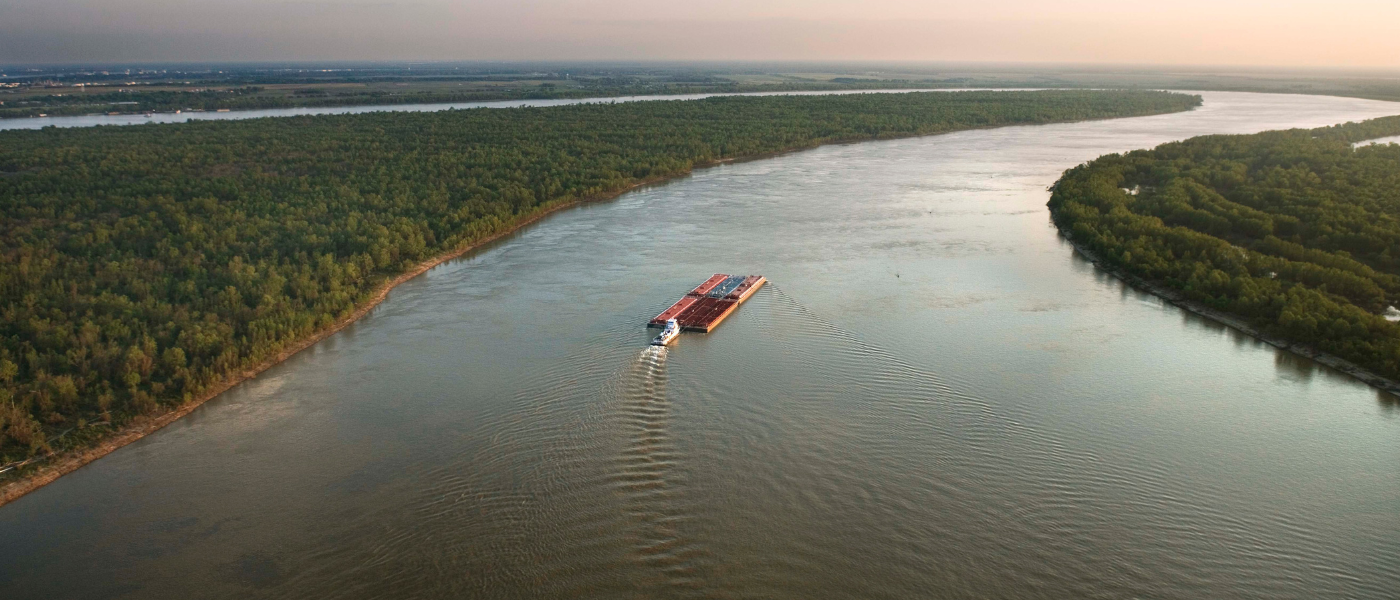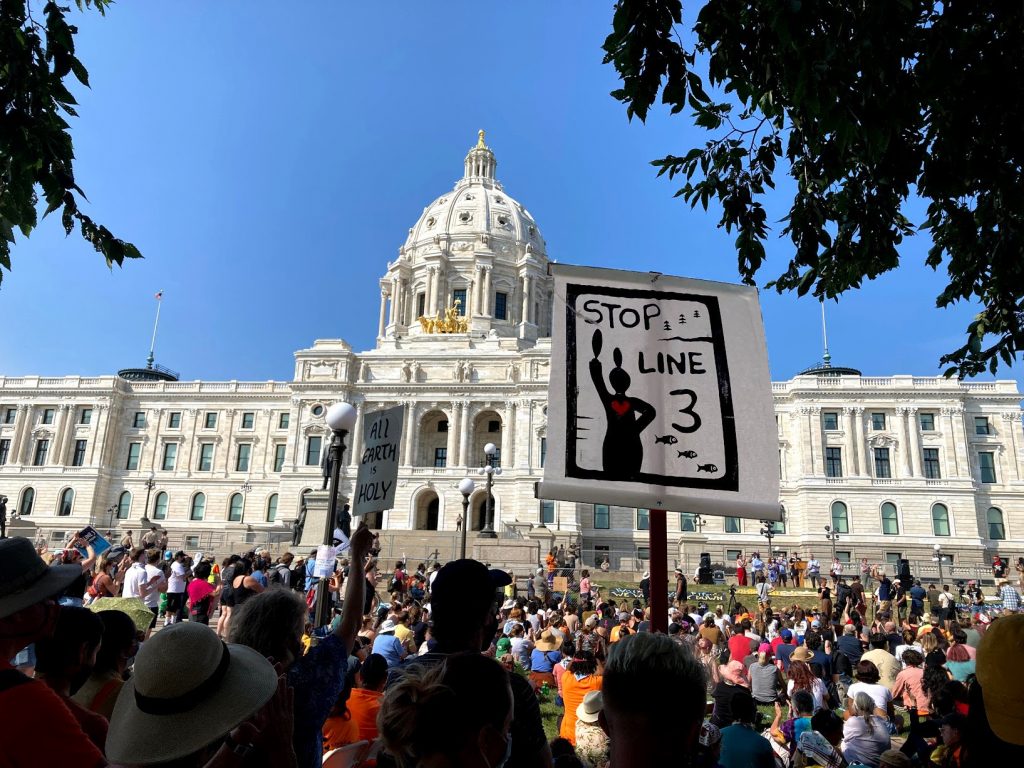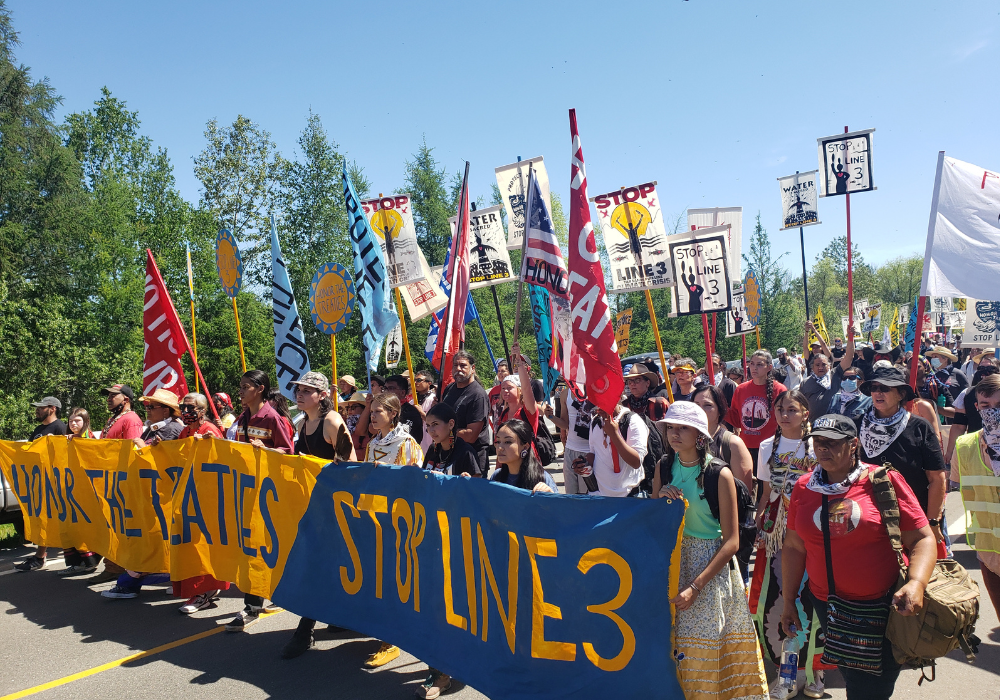In 2021, I stood at the headwaters of the Mississippi River, the place where the entire river begins, and watched as Enbridge, a Canadian pipeline company, built a pipeline through sacred land. The ground shook underneath me. The Indigenous-led Stop Line 3 movement came to a head that summer, with thousands of water protectors showing up in northern Minnesota to stop the pipeline. Over 900 people were arrested during the protests. Many were arrested for trespassing charges.

Enbridge is knowingly trespassing
Trespassing is especially top of mind right now, as another Enbridge pipeline – Line 5 – is embroiled in litigation in Wisconsin and Michigan for trespassing on Tribal and state lands. The United States government just submitted an amicus brief about Enbridge’s Line 5 pipeline, confirming a federal court’s determination that Enbridge has been knowingly trespassing on the lands of the Bad River Band of the Lake Superior Tribe of Chippewa Indians for over 10 years. Specifically, the government asserted that Enbridge “lacks any legal right to remain” on the land.

During the Line 3 resistance movement, just a few hours of standing in front of Enbridge’s pipeline landed some water protectors in jail for days, with many facing escalated felony charges and a prolonged court process. But when Enbridge trespasses for years, for an entire decade, who faces the consequences? Not Enbridge executives, who faced no jail time. Yet the people, plants, animals, and waterways along the pipeline’s route have experienced 33 spills and at least 1.1 million gallons of oil released into the environment since 1968. Line 5 is a 70-year-old pipeline originally built to last 50 years routed through the Great Lakes–a ticking time bomb. Another spill could be catastrophic.
Failing to hold corporate trespassers accountable
Enbridge’s own literature says that trespassing is a danger to the public: “Criminal acts of sabotage and tampering, vandalism, trespassing and occupation of pipeline facilities have the potential to cause serious harm—not only to the perpetrators, but also to nearby communities, the environment, local landowners and the employees who maintain these facilities…Such acts that endanger the public and the environment are criminal acts and we take them very seriously and will support prosecution of all those involved.”
The corporation does not take its own trespassing seriously enough to stop, however.
This is a failure of the justice system. Nonviolent protesters trying to stop harm from happening face felony charges, while the perpetrator of those harms has yet to face any meaningful consequences and instead benefits from a justice system that silences its critics. As of the publication of this piece, Line 5 is still on, threatening the largest freshwater system in the world.
Escalated corporate violence against activists
At Line 3, the on-the-ground resistance came after years of advocacy against the project, including attempted conversations with Enbridge. I will never forget the way that Enbridge co-opted the state police, which in turn escalated violence against nonviolent water protectors protecting their land from the Line 3 pipeline. Enbridge paid Minnesota police and associated agencies over $8.7 million in 2021 for costs related to policing the pipeline. On the ground, activists noted that this financial relationship incentivized an escalated police response to the presence of water protectors.

People oppose Line 3, Line 5, the Mountain Valley Pipeline, and other pipelines because of the dangers these projects present. Line 3 crosses over 200 bodies of water. Line 5 crosses the Great Lakes. The Mountain Valley Pipeline runs through forests. Precious ecosystems risked in pursuit of profit. These projects also sit on Indigenous lands, and in the case of Line 5, without the Tribe’s permission to be there. The pipeline companies are contributing to human rights abuses and environmental destruction, while co-opting local police forces and redirecting their law enforcement efforts towards minor cases of trespass instead of much bigger issues of public harm. The US Government’s brief in the Bad River Band’s case, though acknowledging the trespass of Line 5, stopped short of requiring the company to end its trespassing and suggested a need for more consideration on the diplomatic impacts of shutting down the offending section of the pipeline. Who protects the people when a pipeline company trespasses?





